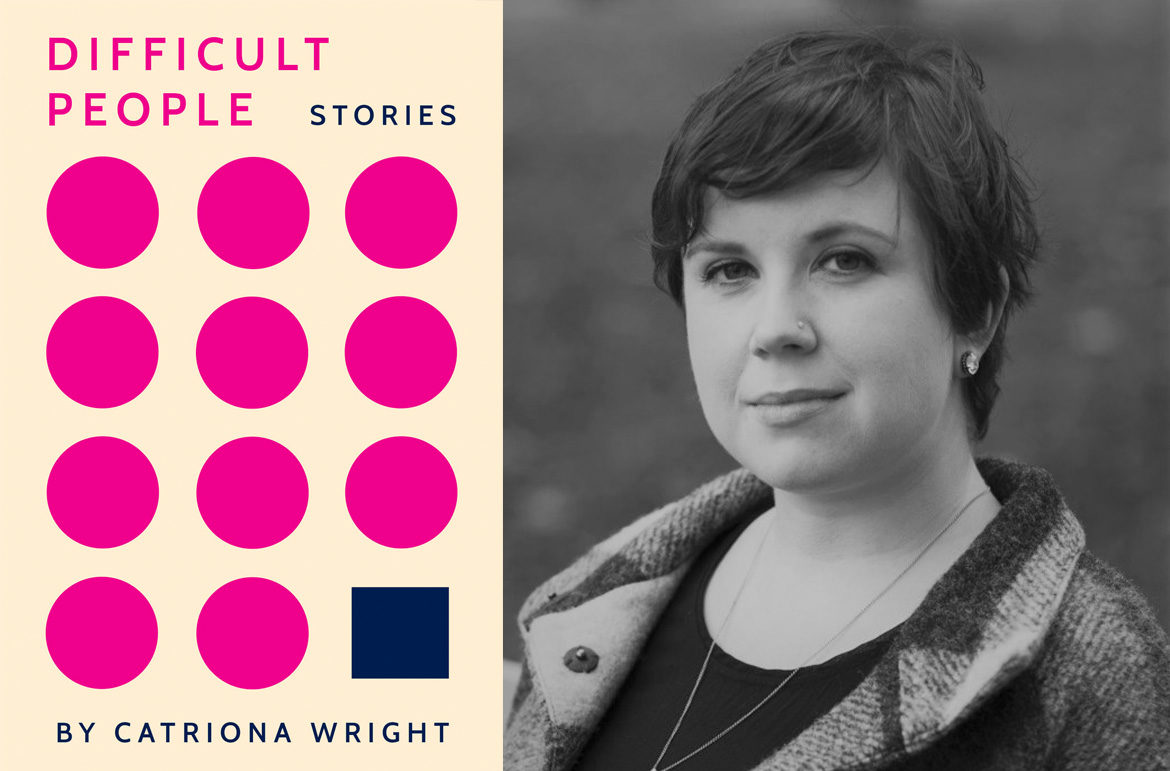Manipulators, liars, egomaniacs, bullies, interrupters, condescenders, ice queens, backstabbers, hypocrites, withholders, belligerents, self-deceivers, whiners, know-it-alls, nitpickers: these are some of the characters you’ll encounter in Difficult People (Nightwood Editions), the debut collection of stories by Catriona Wright.
As these characters fumble through their quests for freediving fame, stand-up glory, romantic love, stable employment or anyone who can tolerate them, they reveal that we are all, in our own ways, difficult people.
Difficult People got a magnificent review in the Kirkus Review and notes that your debut collection of poetry Table Manners mentions individuals “often find[ing] themselves in various circumstances.” The review goes on to say “[t]he author fills the pages with indelible prose and wry humour” and “absorbing.”
Your debut collection deals with difficult people literally. As you wrote Difficult People, did you ever start empathizing with the difficult people or their “victims”?
I empathize with almost every character in the collection (with a few notable exception—I’m looking at you, Doug and Liam). They all have their reasons for doing things, even if the things they’re doing are often less than ideal. The central idea of the collection is not that there are a bunch of difficult people running around ruining our un-difficult lives; rather, I’m trying to suggest that most of us are capable of being difficult, and that difficulty is not always necessarily negative.
So difficult people then, and being difficult, that can be a positive thing?
People are quite resistant to this idea. One of the stories—“Constant Weight Without Fins”—was repeatedly rejected by literary magazine editors who found the narrator unlikeable. This debate about character likeability in fiction erupts every few years (one of my favourite examples is Claire Messud’s interview in Publishers Weekly) and is frequently extremely gendered. Even in fiction, female characters are expected to cater to other people’s emotional needs and expectations. They are supposed to inspire and delight and nurture. Then again, I’ve also been accused of including characters who are not sufficiently unlikeable—these women can’t even be the right kind of difficult, whatever that is.
What bands or songs if any would you want to open for your book. Like if a reader was about to read your book and was making tea or a Caesar, but there was like 15 minutes for a band to play a short set before this fantasy reader started to read Difficult People – who would go on?
Radiohead, most definitely. I’m thinking “Creep” followed by “Fake Plastic Trees” and “Karma Police.” These three songs capture that uneasy mixture of self-deprecation, alienation, weariness, and weird humour.
Catriona Wright is a writer, editor and teacher. Her debut collection of short stories, Difficult People, was published by Nightwood Editions in October 2018. Her work has also appeared in PRISM international, Prairie Fire, The Rusty Toque, Lemon Hound, The Best Canadian Poetry in English 2015 (Tightrope Books) and elsewhere. She’s been a finalist for The Walrus’ Poetry Prize, Arc’s Poem of the Year Contest, a National Magazine Award, and is the author of the poetry collection, Table Manners (Véhicule Press, 2017). Wright currently lives in Toronto where she is poetry editor of The Puritan and co-founder of Desert Pets Press with illustrator Emma Dolan, which publishes limited edition poetry and prose chapbooks.

